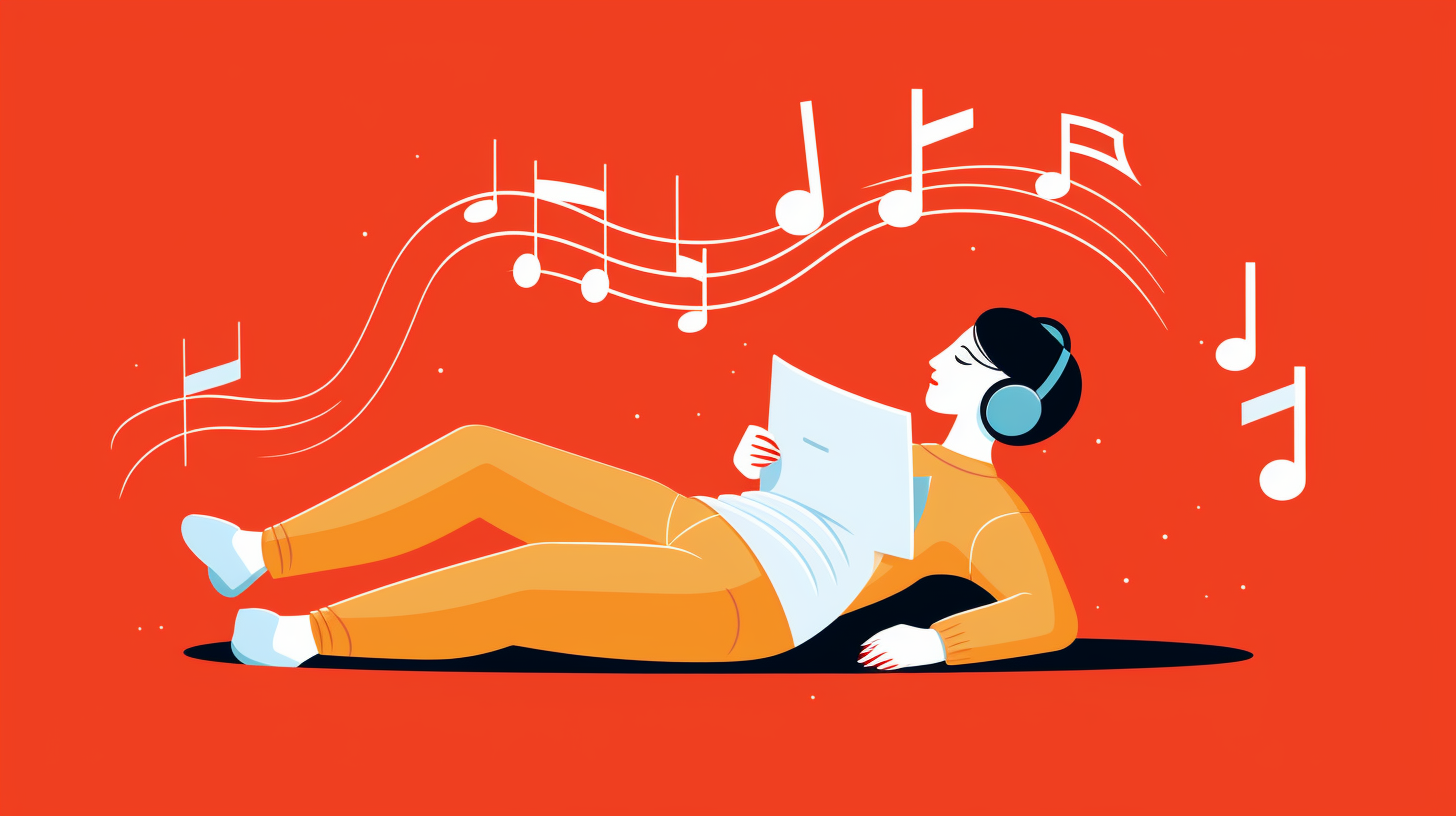In the digital age, the debate of audiobooks vs reading has sparked curiosity and conversation. You’re probably wondering which method is better for your brain, schedule, and overall enjoyment. While reading and listening to books have unique advantages, they also come with certain drawbacks.
We’ll jump into the benefits of audiobooks, highlighting how they can fit seamlessly into your busy life. Next, we’ll explore the benefits of traditional reading and why it might be the superior choice for retention and speed. But it’s not all black and white; we’ll also discuss the drawbacks of audiobooks and reading, ensuring you have all the information to choose what’s best for you.
Benefits of Audiobooks
Convenience
Your lifestyle is increasingly hectic, and fitting in time to sit down with a good book can seem impossible. With audiobooks, the convenience factor is undeniable. You can investigate the latest novels or self-help treasures while you’re on the go, turning what might be wasted time into a valuable literary experience. Whether in line at the supermarket or on a leisurely walk, an audiobook is ready at the press of a button – no page-turning required.
Multitasking
Multitasking is a part of modern life, and audiobooks fit seamlessly into your ability to do more at once. Imagine folding laundry while absorbing a bestseller or immersing in a fantasy world while meal-prepping. The beauty of listening to an audiobook instead of reading is that your hands and eyes are free, allowing you to accomplish other tasks without sacrificing your love for stories.
Accessibility
Audiobooks champion inclusivity, offering a path to literature for those who find reading challenging. If you’ve faced barriers like vision impairment or dyslexia, the auditory nature of audiobooks can transform your experience with books. Discover the joy of audiobooks vs reading, where the former brings stories to life with a simple play button, paving the way for everyone to enjoy the wonders of the written word.
Benefits of Reading
While exploring the audiobooks vs reading debate, it’s crucial to understand the inherent advantages of traditional reading. Reading texts, whether fiction or non-fiction, engages your brain uniquely and delivers many benefits.
Mental Stimulation
Reading keeps your mind active and engaged. Mental stimulation is necessary to keep your brain sharp and can reduce the risk of cognitive decline as you age. When you investigate a reading session, multiple areas of your brain light up, working together to help you understand and process the story. Also, mental engagement can improve neuronal connectivity, impacting your brain’s long-term health.
Improved Vocabulary
Regular reading can significantly boost your vocabulary. Each book you read introduces you to new words, enabling you to understand them in context, which can enhance your spoken and written language skills. Children and adults alike expand their vocabulary more effectively through reading, which can boost confidence in communication and foster a love for learning new things.
Better Comprehension
There’s no doubt reading challenges your brain’s comprehension abilities. When you read, you follow a narrative, grasp complex ideas, recognize cause and effect, and empathize with characters. This level of comprehension requires focus and concentration, and it’s often said that this critical engagement is more intense in reading vs audiobooks. As you absorb the content, your ability to comprehend and retain information hones, eventually enhancing your cognitive capabilities.
Understanding the pros and cons of both reading and audiobooks is essential. Whether you’re questioning, “Do audiobooks count as reading?” or pondering the differences between audiobook vs reading comprehension, it’s clear that each method has unique advantages. While audiobooks often offer convenience and can simulate the joy of storytelling, traditional reading provides a deeper level of mental engagement. If you’re curious about how audiobooks work or if listening to an audiobook is the same as reading, consider that both activities stimulate your brain in distinctive ways. Balancing both methods might offer you the best of both worlds.
Drawbacks of Audiobooks
Potential Distractions
While audiobooks offer a versatile listening experience, they’re not immune to environmental interference. Your absorption of the narrative may be compromised when multitasking or navigating noisy settings. External sounds and activities compete with the audiobook’s content, leading to missed details. This is particularly challenging when you’re trying to grasp complex subject matter. Also, audiobooks don’t automatically pause for reflection or replay subtle cues you might’ve missed, which can be a downside in comparison to the immersive focus that comes with traditional reading.
Limited Interaction
Interaction with a physical book, such as highlighting text or making notes in the margins, is lost in the audio form. Although there are technologies enabling bookmarking and note-taking within audiobooks, they can’t quite replicate the hands-on engagement of reading. If you’re the kind of person who learns by writing things down, the shift to purely auditory learning may take some adjustment. This aspect of audiobooks vs reading often favors the latter, especially for those deeply ingrained in active note-taking practices during their reading sessions.
Less Engagement
Reading vs audiobooks brings up another debate: the level of engagement. Playing a predetermined narration, audiobooks could diminish your role in character and world-building. When you read, you’re actively involved in the nuances of storytelling — from the pace you proceed to the voices you assign characters in your head. While what is an audiobook is a convenient alternative to the written word, this convenience might come at the cost of reduced imaginative engagement, especially if you’re someone for whom do audiobooks count as reading is a matter of personal connection to the story.
While considering how does audiobooks work, it’s clear they can be a significant part of your literary journey. Each format has its own merits. Yet, the question of is listening to an audiobook the same as reading can hinge on these limitations. Nonetheless, audiobooks remain a powerful tool for consuming literature in our fast-paced world, where sitting with a book is often a luxury.
Drawbacks of Reading
Requires Concentration
Your focus is paramount when engaging with the written word. Physical books demand a level of concentration that’s challenging to maintain in a world brimming with distractions. Unlike audiobooks, you can’t multitask; you must be steadfast in your reading environment to ensure complete comprehension. When considering audiobooks vs. reading, the former allows the freedom to listen while accomplishing other tasks, a feature reading can’t offer.
Time-Consuming
Sifting through pages takes time—a luxury you might not always have. In the debate between audiobooks vs reading, the time factor is crucial. Audiobooks work to your advantage, allowing you to consume literature without carving out substantial portions of your day. They embrace efficiency, enabling you to absorb books during commutes, workouts, or household chores—the ultimate blend of productivity and intellectual nourishment.
Physical Strain
Reading is not just a mental but also a physical Try. Prolonged reading periods can result in eye strain and require a particular posture that may lead to discomfort. With the rise of digital consumption, you might wonder, “What is an audiobook’s role in alleviating this?” Simply put, audiobooks eliminate this physical strain, crafting an experience that cares for your well-being by allowing your eyes and body a respite. At the same time, your mind delves into stories and knowledge.
Conclusion
Audiobooks have emerged as a powerful alternative to traditional reading, offering flexibility and efficiency. They’re your ticket to enjoying literature without the strain or the need for undivided attention. Whether commuting or doing chores, you can immerse yourself in a story hands-free. Embrace the change and let audiobooks transform your reading experience into something more accessible and adaptable to your busy lifestyle. Rest your eyes and let your imagination soar with the spoken word.
Frequently Asked Questions
Are there benefits to listening to audiobooks?
Yes, audiobooks have several benefits, including the ability to consume books while multitasking, ease of listening for those who struggle with physical texts, and the opportunity to enjoy literature in a potentially more engaging format via narrators’ interpretations.
How does the speed of audiobook listening compare to reading?
Listening can be slower than reading; people often read at 250-300 words per minute, while average audiobook narration is closer to 150-160 words per minute. This difference means reading may consume less time than listening to the same content.
Why might someone prefer reading over listening?
Some prefer reading because it allows quicker content consumption at about 250-300 words per minute. It also enables a more personal interpretation of the text and can be less distracting for fast learners and those who enjoy visual interaction with the material.
Can audiobooks be beneficial for individuals with ADHD?
Yes, audiobooks can benefit people with ADHD as they engage the auditory processing aspect of the brain, which may aid in maintaining attention and comprehension over extended periods compared to traditional reading.
How can audiobooks positively affect mental health?
Audiobooks can be soothing and offer a mental break from negative thinking patterns. As reported by Psychology Today, listening to a story read aloud can replace anxious or depressive thoughts with engaging content.



